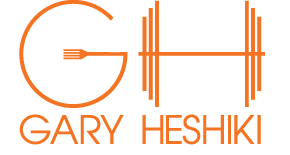"I'm sick, can you please direct me to the cheapest doctor that will do the job?"
"My car is making a weird noise, can you recommend the least expensive mechanic?"
"My roof is leaking, will you please call the cheapest repair man?"
"I need a personal trainer, do you know anyone cheaper than the guy at the gym?"
Of the four statements I bet most people would say that number four is the one they would likely think or say. Why is that?
Standards in Fitness
It's a catch 22--you don't know what to do and you want to hire someone. The problem is that a $30 per hour trainer may not know how to work around your specific injuries, compensations and/or lifestyle so they may in fact do more harm than good. But no one bats an eye after you get hurt because they say it's part of the process. No pain no gain, right? (No, it's not.)
Do you have to seek out the most expensive trainer around? No, and in fact there are fantastic coaches available at all price points if you look hard enough. The problem isn't the consumer being educated but the industry as a whole. Whether you hire a commercial gym trainer or an independent seasoned vet, you should be able to get results and be better off having hired said coach, not worse. Unfortunately this isn't the case across the board.
Why Do Some Trainers Cost $100+ per hour?
Why do some trainers command over $100-150 per hour if all should be qualified enough to help you out with any straight forward goals, like adding on muscle or losing 15 pounds?
It comes down to specialization and likelihood of remaining safe. Price often acts as a filter for quality, though not always the case.
Lets use a doctor's analogy: If you have a cold, you would likely visit to a general practice physician. But if you have a broken leg and needed surgery, you'd likely go to an orthopedic doctor and surgeon. It makes sense that the person who specializes in that specific area of medicine would be the person to cut you open, not the general practice doctor. But both are doctors! Yes, but one has a bit more knowledge about the matter at hand. And since a surgery is a much more dangerous and intricate procedure, I'm willing to bet they will cost more.
So can the $30 per hour trainer help your daughter with her ACL post-physical therapy outpatient rehab? Maybe, but I bet that $200 per hour trainer who has testimonials of similar cases and the background to aid her can. Yes, it's a lot more money, but if you want the job done right, you hire once and you hire right. For me, I'd rather spend three months with a more knowledgable, more expensive trainer than 8 months with a less expensive, less knowledgable one if it means I'll get the best results possible. In this scenario I'm also willing to bet you'll remain safer with the $200 per hour coach.
Too often the fitness industry writes articles about how the consumer needs to become more educated, pushing the onus on them. While I don't disagree that a more educated customer is beneficial, I also feel that the industry as a whole needs to take more accountability on raising their own standards of practice. Only then will telling people you're a "personal trainer" actually mean something more than just a guy who counts reps and grabs you a towel.






